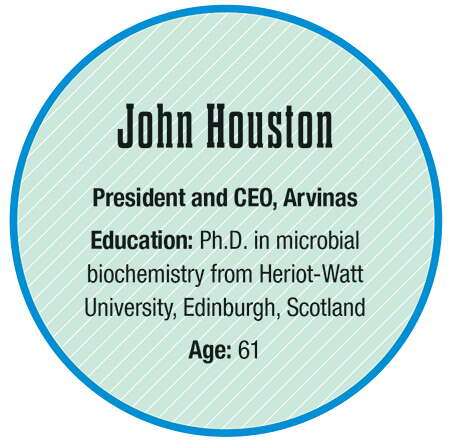
Processing Your Payment
Please do not leave this page until complete. This can take a few moments.
-
News
-
Editions
-
- Lists
-
Viewpoints
-
HBJ Events
-
Event Info
- 2024 Economic Outlook Webinar Presented by: NBT Bank
- Best Places to Work in Connecticut 2024
- Top 25 Women In Business Awards 2024
- Connecticut's Family Business Awards 2024
- What's Your Story? A Small Business Giveaway 2024 Presented By: Torrington Savings Bank
- 40 Under Forty Awards 2024
- C-Suite and Lifetime Achievement Awards 2024
- Connecticut's Health Care Heroes Awards 2024
-
-
Business Calendar
-
Custom Content
- News
-
Editions
View Digital Editions
Biweekly Issues
- April 15, 2024
- April 1, 2024
- March 18, 2024
- March 4, 2024
- February 19, 2024
- February 5, 2024
- January 22, 2024
- January 8, 2024
- Dec. 11, 2023
- + More
Special Editions
- Lists
- Viewpoints
-
HBJ Events
Event Info
- View all Events
- 2024 Economic Outlook Webinar Presented by: NBT Bank
- Best Places to Work in Connecticut 2024
- Top 25 Women In Business Awards 2024
- Connecticut's Family Business Awards 2024
- What's Your Story? A Small Business Giveaway 2024 Presented By: Torrington Savings Bank
- 40 Under Forty Awards 2024
- C-Suite and Lifetime Achievement Awards 2024
- Connecticut's Health Care Heroes Awards 2024
Award Honorees
- Business Calendar
- Custom Content
Arvinas to double workforce as $2.4B Pfizer deal jump-starts breast cancer drug development
 PHOTO | FILE IMAGE
John Houston
PHOTO | FILE IMAGE
John Houston
It’s been a mere five months since Arvinas signed a blockbuster $2.4 billion deal with Pfizer, assuring 2021 would go down as a raging success.
But as the calendar flips to 2022, the focus at the New Haven biopharma will be on demonstrating its groundbreaking breast cancer drug is as effective as Pfizer — and thousands of desperate patients — hope.
CEO John Houston couldn’t stifle a grin as he reported Arvinas was sitting on $1.6 billion, even without cashing in on the contract’s performance milestone payments.
The bankroll will fund additional trials of the drug alone and in combination with Pfizer’s Ibrance product, all leading toward the start of stage 3 trials in the second half of the year. And the firm is on a hiring spree that is expected to double the workforce from today’s 275 employees.
Arvinas was founded in 2013 by Dr. Craig Crews, a Yale professor and executive director of its Center for Molecular Discovery. The idea was to leverage his breakthroughs in therapies that degrade disease-causing proteins.
Houston, 61, came aboard in 2017 as employee No. 41. He holds a Ph.D. in microbial biochemistry and spent 18 years at Bristol-Myers Squibb, more than eight of that as a senior vice president.
Initially, Arvinas’ lead product was ARV-110, described as a proteolysis targeting chimera (PROTAC) protein degrader that targets the androgen receptor protein in prostate cancer. A second product, ARV-471, was about 18 months behind and takes a similar approach to degrading the estrogen receptor protein for the treatment of patients with metastatic ER positive/HER2 negative breast cancer.
If that phrase sounds familiar, you’ve probably heard a Pfizer commercial for its Ibrance product. And that’s the key to Pfizer’s interest in ARV-471.
Early data suggest ARV-471 shows promise on its own but in combination with Ibrance may be a game-changer in the treatment of metastatic breast cancer.
Stage 3 trials
In July, Pfizer and Arvinas became 50-50 partners in the development and global commercialization of ARV-471. The deal is valued at $2.4 billion, combining the $650 million upfront payment, a $350 million investment and $1.4 billion in potential milestone payments when performance goals are reached.
Before the deal, Arvinas’ stock was trading in the low $20s. When details emerged, the stock bounced to $108 before settling near $80. Still, that’s a market capitalization of about $4 billion, not bad for a money-losing company preparing to enter its ninth year.
With Pfizer’s backing, Arvinas has been able to accelerate its progress on ARV-471 and expects to start stage 3 clinical trials in the second half of 2022. Results aren’t likely before 2023.
Yale New Haven Hospital was among the sites of earlier trials; no announcement has been made on stage 3 sites.
While ARV-471 is clearly the star of the show, Houston remains bullish on the potential for ARV-110, the prostate therapy. He explains the field for prostate cancer therapies is less crowded and potential competitors are behind Arvinas’ progress.
The company retains full ownership of ARV-110 but the high cost of stage 3 trials may require seeking a deep-pocketed partner.
Also in the pipeline are possible therapies for solid tumors, blood cancers and a host of diseases like Alzheimer’s and Parkinson’s that so far have been largely beyond the reach of drugs.
More space needed
While COVID-19 caused some operational dislocations, it also opened up some creative solutions. Those who could work remotely did so.
But the laboratory is the heart of Arvinas. And that empty office space at 5 Science Park was turned into new lab space. When that was exhausted, Arvinas added space at 4 Science Park.
Even with the extra space, Houston said, there isn’t room for everyone to work on-site. With plans to double the staff in 2022, the space crunch will only get worse. More creative solutions will be needed, he said, and satellite labs are one possibility. So is more temporary space nearby.
The space crunch won’t ease until sometime in 2024 when a new tower at 101 College St. is completed. Arvinas has signed on for 160,000 square feet of lab and office space across three floors of the 10-story building, part of what Houston describes as the firm’s long-term commitment to New Haven.
Part of the appeal is the proximity to Yale — 101 College is near Yale’s School of Medicine and Yale New Haven Hospital.
Another part is an appreciation for the bioscience environment along the shoreline and what Houston calls the “bump-into-ability,” wherein a random meeting at a café or market can turn competitors into colleagues.
Then there’s a deep appreciation of the role Connecticut has played in the success of Arvinas so far. Houston speaks in glowing terms of the early support the firm received from Connecticut Innovations and later from local investors.
As Houston looks ahead, he said this is a great time to be hiring in New Haven’s bioscience environment. While some big-name biopharma firms have exited Connecticut, many of their key employees — on both the science and business sides — are eager to stay. And Arvinas is rolling out the welcome mat.
He said that today about 70 percent of Arvinas employees work in the lab, but by the end of 2022 he expects the ratio to even out as more business-side positions are filled.
Despite the rosy prospects, the immediate future is bathed in red ink. Costs are rising sharply; revenues won’t spike until the U.S. Food and Drug Administration allows the first of the therapies to reach the market. That seems a long way off for an outfit that just reported a net loss of $46.8 million in the third quarter.
There’s enough cash on hand to carry Arvinas into 2024, but Houston said a decision on whether additional funding is necessary could come in late 2022.
There are also published reports that insiders recently sold stock worth tens of millions of dollars and speculation is mounting that hedge fund investors may follow.
All in all, there should be no shortage of headlines flowing from Arvinas in the new year.


2022 Giving Guide
This special edition informs and connects businesses with nonprofit organizations that are aligned with what they care about. Each nonprofit profile provides a crisp snapshot of the organization’s mission, goals, area of service, giving and volunteer opportunities and board leadership.
Learn more
Subscribe
Hartford Business Journal provides the top coverage of news, trends, data, politics and personalities of the area’s business community. Get the news and information you need from the award-winning writers at HBJ. Don’t miss out - subscribe today.
Subscribe
2024 Book of Lists
Delivering Vital Marketplace Content and Context to Senior Decision Makers Throughout Greater Hartford and the State ... All Year Long!
Read Here-
2022 Giving Guide
This special edition informs and connects businesses with nonprofit organizations that are aligned with what they care about. Each nonprofit profile provides a crisp snapshot of the organization’s mission, goals, area of service, giving and volunteer opportunities and board leadership.
-
Subscribe
Hartford Business Journal provides the top coverage of news, trends, data, politics and personalities of the area’s business community. Get the news and information you need from the award-winning writers at HBJ. Don’t miss out - subscribe today.
-
2024 Book of Lists
Delivering Vital Marketplace Content and Context to Senior Decision Makers Throughout Greater Hartford and the State ... All Year Long!
ABOUT
ADVERTISE
NEW ENGLAND BUSINESS MEDIA SITES
No articles left
Get access now
In order to use this feature, we need some information from you. You can also login or register for a free account.
By clicking submit you are agreeing to our cookie usage and Privacy Policy
Already have an account? Login
Already have an account? Login
Want to create an account? Register
Get access now
In order to use this feature, we need some information from you. You can also login or register for a free account.
By clicking submit you are agreeing to our cookie usage and Privacy Policy
Already have an account? Login
Already have an account? Login
Want to create an account? Register






0 Comments